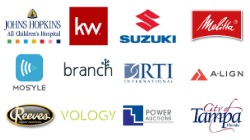Security 101
SOC Audit
So what exactly is a SOC Audit?
What is SOC?
SOC is an acronym that now stands for System and Organization Controls (previously Service Organization Controls) and is an audit of a companies controls that are in place to help ensure the Security, Availability, Processing Integrity, Confidentiality and Privacy of their customers data. The SOC control standards were created and overseen by the American Institute of Certified Public Accountants (AICPA). SOC audits come in many types including SOC 1 & SOC 2 as well as SOC for Cybersecurity.
So, what exactly is a
SOC Audit?
A “SOC Audit” typically refers to a SOC 2 assessment, which evaluates your organization’s policies, procedures, and technical controls to ensure data is properly protected. By reviewing how your systems are designed and operated, a SOC 2 report gives your customers confidence that their information remains secure when entrusted to you.
For service organizations such as third-party printing companies, data centers, or payment processors, this is especially important. Clients want assurance that their data is safeguarded at every stage—and a SOC 2 report provides tangible proof that you’re meeting recognized standards for security and operational integrity on their behalf.
How do I
Prepare for a SOC Audit?
Preparing for a SOC audit can be a daunting task. Adsero Security can help you collect all your policies, procedures and evidence that is needed for the SOC audit. The next step is to identify any gaps in compliance that could cause problems during the audit. Adsero Security can help you craft policies and gather evidence of compliance that you will need during the auditing process. Understanding the requirements for a SOC audit can be confusing, but Adsero Security can help you understand exactly where you stand and what your company needs to have a successful SOC audit.
Adsero Security can help your company prepare for your upcoming audit. We provide the following full range of services to do the heavy lifting and get you prepared for your audit.
What is the difference between
SOC 1 and SOC 2?
-
SOC 1 primarily evaluates the effectiveness of an organization’s internal controls over financial reporting (ICFR). It’s typically sought by companies whose services can impact their clients’ financial statements, ensuring that all financial processes and reporting mechanisms are accurate and compliant.
-
SOC 2 focuses on how an organization secures its data and technology, examining controls aligned with the AICPA’s Trust Services Criteria (Security, Availability, Processing Integrity, Confidentiality, and Privacy). When most people talk about a “SOC Audit” for security or technology assurance, they’re usually referring to a SOC 2 assessment.
- SOC 2 Type 1 is a point-in-time evaluation that assesses the design of controls at a specific moment.
- SOC 2 Type 2 is a more comprehensive assessment that spans a defined period (often 6–12 months), verifying that those controls not only exist but were consistently operating as designed.
Most organizations begin with a SOC 2 Type 1 report to establish a baseline, then progress to a SOC 2 Type 2 to provide ongoing assurance that controls remain effective over time.
What are the
SOC 2 Service Trust CATEGORIES?
When undergoing a SOC 2 audit, your organization’s controls can be evaluated against five Trust Service Categories. Security is mandatory for every SOC 2 report, while the other four are optional and depend on the services you provide and the needs of your clients. These categories help ensure systems are designed and operated securely and reliably:
-
Security (Required)
Ensures the system is protected against unauthorized access—both physical and logical—to safeguard data and prevent misuse. -
Availability
Verifies the system is accessible as agreed, so users can reliably interact with your services when needed. -
Processing Integrity
Confirms system processing is complete, accurate, timely, and authorized, helping maintain data quality and trust. -
Confidentiality
Ensures information designated as confidential is properly protected according to organizational commitments and legal or regulatory requirements. -
Privacy
Addresses how personal information is collected, used, retained, disclosed, and destroyed in line with the service organization’s privacy policies and recognized standards (such as the AICPA’s privacy principles).
Who Is Adsero Security?
We are consulting firm built to help you secure your company and prepare for compliance.
Why Adsero?
Pressed with an audit deadline? Client asking for policies? Need a security testing report? We can help solve most security and compliance issues quickly to keep your business running and uninterrupted.
Who do you work with?
We have solutions to meet any company size, from 10 employee startups to 10,000 seat global enterprises. We work to build solutions to fit your needs.

Security 101
Learning Center
